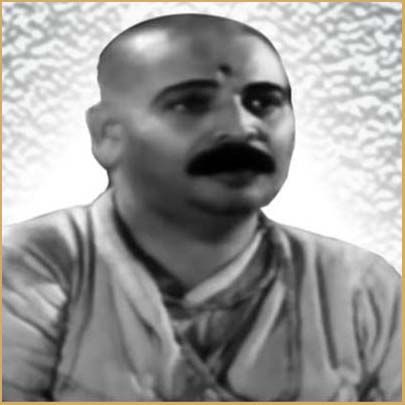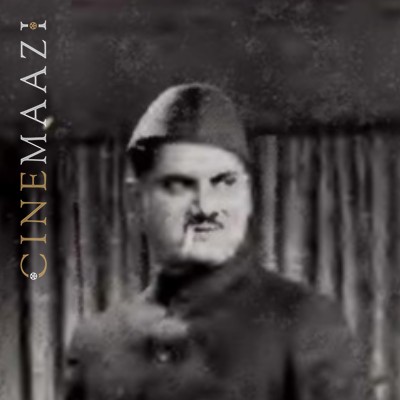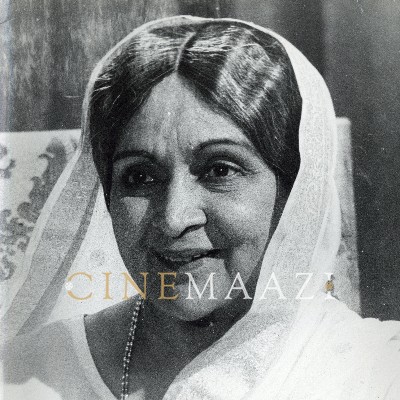Vishnupant Pagnis

Subscribe to read full article
This section is for paid subscribers only. Our subscription is only $37/- for one full year.
You get unlimited access to all paid section and features on the website with this subscription.
Not ready for a full subscription?
You can access this article for $2 , and have it saved to your account for one year.
- Born: 1892
- Died: 3 October 1943
- Primary Cinema: Marathi
Actor-music director Vishnupant Pagnis is known mainly for saint genre films and mythologicals. As an actor, his filmography includes Surekha Haran (1921), Poona Raided/ Poona Par Hallo (1924), Sant Tukaram (1936) which is regarded as one of the greatest biographical performances of Indian cinema, Narsi Bhagat (1940), Mahatma Vidur (1943), and Bhakta Raaj (1943). He also composed the music for Sant Janabai (1938), and Sant Tulsidas (1939), in which he also acted.
Born in 1892, he became a professional actor on the Marathi Sangeet Natak from the age of 10. He was part of the Swadeshi Hitchantak Natak Mandali of Kolhapur. He was known for playing the female roles of Sharada and Shakuntala in command performances for the Shahu Maharaj.
Fame came with his essaying of female roles in Mama Warerkar’s first play, Kunjvihari (1908), and in Tembe’s Shivraj Natak in which he played the heroine in the Hindi version of Siddhasansar. He evidently modeled his performing style on that of the Gujarati actor of female roles - Jaishankar Sundari.
He went on to appear in silent movies produced by Maharashtra Film. The mythologicals Surekha Haran and Surekha Abhimanyu, both released in 1921 and both directed by Baburao Painter, featured Pagnis in the cast.
Poona Raided/ Poona Par Hallo saw him part of the cast that was headlined by Miss Kaiser, Dulari, and Sunder Rao Nadkarni. An expensive historical film, it depicted the exploits of the 17th century Maratha emperor Shivaji. The film tells the legendary episode of Mughal emperor Aurangzeb (Shankarrao Sahasrabuddhe)’s attack on the city of Pune (then called Poona) and of how Shivaji (Krishnarao Ketkar) repelled it.

When his career dwindled, he took up work as a music teacher in a municipal school. However, his fortunes changed when, at the last minute, he was cast in the lead of Sant Tukaram (1937). Produced by Prabhat Film Company, it was directed by Vishnupant Govind Damle and Sheikh Fattelal. Pagnis essayed the lead role in the film based on the life of the famed Tukaram (1608–50), a prominent Varkari saint and spiritual poet of the Bhakti movement in India. Sant Tukaram became the first Indian film to receive international recognition. It was adjudged as one of the three best films of the world at the Venice Film Festival and was also showcased at other international film festivals. A runaway success, it also broke box office records by becoming the first Indian film to run in a single theatre for more than a year. It was Prabhat's most famous film and became the archetype for devotional films.
Pagnis’s performance as Tukaram would go on to be regarded as a key reference point in debates about Indian performance idioms. It is referenced in Kumar Shahani’s essay The Saint Poets of Prabhat, 1981; and Geeta Kapur’s Mythic Material in Indian Cinema, 1987.
After this landmark performance, Pagnis became greatly influenced by the poet-saint Tukaram, and is said to have remained under the latter’s spell. He would even be invited to sing keertans and was in demand for his recitals.
He would go on to feature in four more films, belonging to the saint genre, working with filmmakers Jayant Desai and Vijay Bhatt. These include Sant Tulsidas (1939), Narsi Bhagat (1940), Mahatma Vidur (1943), and Bhaktaraj (1943). In the big budget film Sant Tulsidas, he essayed the 16th century saint who performs several miracles, and is the author of the great epic, the Ramcharitmanas. The devotional biopic Narsi Bhagat saw him play Gujarat's famous saint-poet Narsinh Mehta. The film contains his most popular bhajan, Vaishno jan to tene kahiye je peed parayi jane re, which was also the favourite of Mahatma Gandhi. Mahatma Vidur saw him essay Vidur, in this mythological directed by Parshwanath Yeshwant Altekar and Baburao Painter. In Bhaktaraj, he was part of the cast comprising Dixit, Eddie Billimoria, Vasanti and Kaushalya.
Pagnis also served as the music director for Sant Janabai (1938), directed by Narayanrao Sarpotder and D.G. Devare Narayan. It starred Heerabai Badodekar, Kamlabai Barodekar, Anant Marathe, and others.
Vishnupant Pagnis passed away in 1943.














.jpg)



